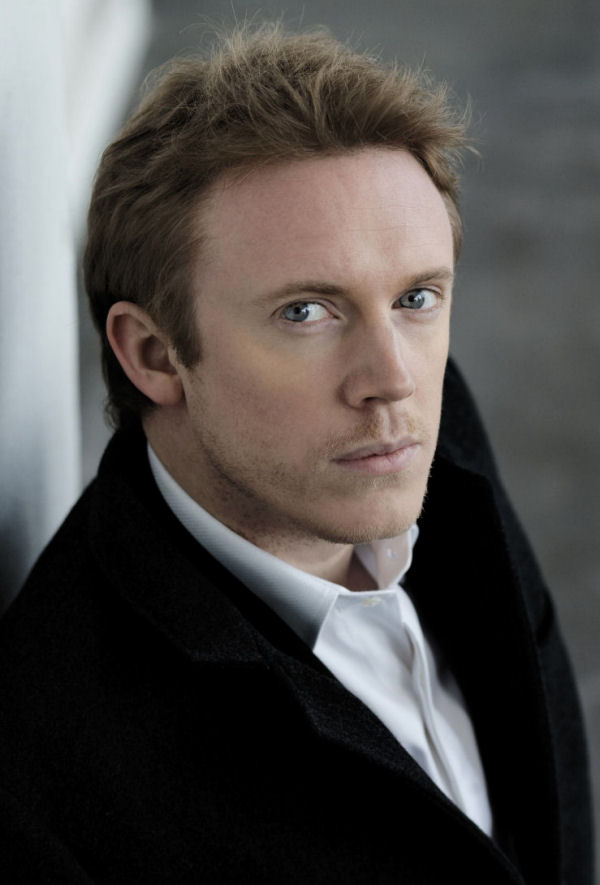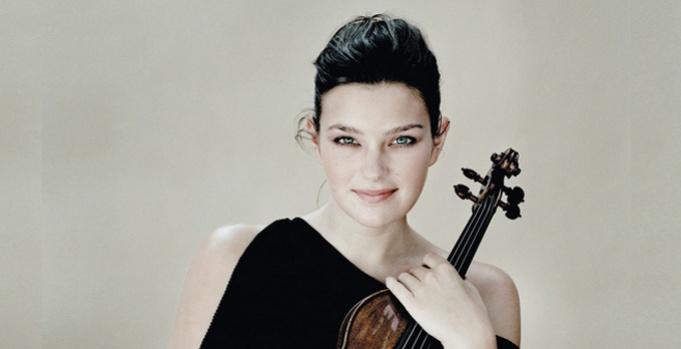How to respond to Mahler? That was the challenge set by the London Symphony Orchestra to Edward Rushton when they commissioned him to write an opener for this programme. Rushton’s response was to take a story from a biography of Alma and spin it into an orchestral fantasy. The story goes that Alma, listening to Gustav compose the Fifth Symphony, complained about the excessive orchestration, which he then dutifully toned down.
Even by Rushton’s own admission the tale is apocryphal to the point of outright fiction, but it provided a starting point for a more idiosyncratic exploration of Mahler’s orchestra. Rushton’s score, titled I nearly went, there, is a gloss on the Mahler, exaggerating the more extreme contrasts and explosive orchestral effects. Short, bold statements are passed around the instrumental sections, with the orchestra itself always the music primary focus. He’ll write a long melody in the strings, but then accompany it with rasping glissandos in the trombones. Humour here is never far from the surface, despite the consistently dissonant language, but this is an occasional piece, as ephemeral and forgettable as its bizarre title suggests.
A better question might be, why respond to Mahler? A piece designed to complement the warhorse in the second half seems a timid way of justifying a new work in an otherwise traditional concert programme. It is a challenge for the composer, but he’s hardly starting from a position of absolute artistic freedom. And the resulting work is completely beholden to the programme in which it appears. If Rushton’s score seemed inconsequential, the commission that it satisfied must take at least some of the blame.
 A capacity audience turned out, not, I suspect for the Rushton, but to hear Janine Jansen perform the Mendelssohn Violin Concerto. They weren’t disappointed. Jansen has recently started playing the 1727 "Baron Deurbroucq" Stradivarius, and it’s a match made in Heaven. Jansen and her new instrument produce a sinewy but always light and agile tone. She can take it down to a whisper, and then suddenly reappear from nowhere to present a strident thematic statement. The tempi here were often fast – posing no challenges to her fingerwork – but never rigid, as the music ebbed and flowed under her bow. And everywhere there were surprises, with new ideas and themes jumping out of the texture and changing the music’s course. Any familiarity with the Concerto on the listener’s part became incidental – Jansen was forging it anew from one note to the next. A mesmerising performance, and the clear highlight of this concert. And then, as an extra, Jansen and leader Roman Simovic performed the last movement of Prokofiev’s Sonata for Two Violins, a substantial and knotty offering for an encore, but presented here with the utmost clarity of texture and line.
A capacity audience turned out, not, I suspect for the Rushton, but to hear Janine Jansen perform the Mendelssohn Violin Concerto. They weren’t disappointed. Jansen has recently started playing the 1727 "Baron Deurbroucq" Stradivarius, and it’s a match made in Heaven. Jansen and her new instrument produce a sinewy but always light and agile tone. She can take it down to a whisper, and then suddenly reappear from nowhere to present a strident thematic statement. The tempi here were often fast – posing no challenges to her fingerwork – but never rigid, as the music ebbed and flowed under her bow. And everywhere there were surprises, with new ideas and themes jumping out of the texture and changing the music’s course. Any familiarity with the Concerto on the listener’s part became incidental – Jansen was forging it anew from one note to the next. A mesmerising performance, and the clear highlight of this concert. And then, as an extra, Jansen and leader Roman Simovic performed the last movement of Prokofiev’s Sonata for Two Violins, a substantial and knotty offering for an encore, but presented here with the utmost clarity of texture and line.
Daniel Harding (pictured above) gave a very different reading of Mahler’s Fifth. After exemplary trumpet fanfares from Philip Cobb (just a whisper of vibrato betraying his brass band roots) the music stilled and an eerie calm set in. The placid interlude that besets the first movement early on, and the second movement too as it turned out, was presented here as an oasis of calm.
Where to take the music from here? Harding certainly raised the temperature for the early climaxes just a few minutes later in, and the performance never lacked for drama. But it often felt too smooth and coherent. Harding has a good sense for the gradual crescendo, for generating energy from inside the textures to gradually work up to a climax. But Mahler just as often requires a sudden burst or an instantaneous change of direction, which always seemed alien to Harding’s tectonic approach. Much of the second movement, steady and broad but always expansive, seemed positively Brucknerian. And when, in the Scherzo, the heavens open, and the busy string lines are briefly interrupted by an ethereal woodwind chorale, this too was seamlessly integrated, with no sense of otherworldliness, or even interruption.
Given the broad tempos of the first three movements, the brisker pace of the Adagietto came as a relief, and this proved the high point of the Symphony. The superlative LSO string sound deserves much credit here, but so too Harding, whose generous phrase-shaping and finely judged pace brought out every ounce of the music’s poetry and soul. The Finale grew naturally out of the Adagietto, and this too was largely successful, although that cloying sense of predictability set in again towards the end. Harding’s Mahler had many strengths this evening, not least his feeling for the music’s broader shape and his balancing of the often complex textures. But the weaknesses, the lack of spontaneity and the often stolid pacing, were all the more apparent through comparison with Jansen’s playing in the first half: her vitality, nimble phrasing and engaging sense of spontaneity were exactly what Harding lacked.














Add comment